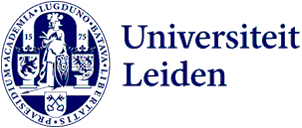Datamanagement
Data management refers to creating, saving, updating, making available, archiving and long-term storage of research data. The final goal of this process is often defined in terms of the FAIR principles: 'Findable, Accessible, Interoperable and Re-usable'.
This involves thinking carefully, before you start collecting or creating data, to make sure that your data is findable, accessible, interoperable and re-usable. Not only for others, but also for your own future use.
For more information on data management, see the University Library website.
Research data must be securely preserved, during but also after your research. Read about data management, data retention and open science.
Data management can be defined as the creation, storage, maintenance, disclosure, archiving and sustainable preservation of research data.
A framework for a University research data management policy is available (data management regulations). The regulations have been elaborated at disciplinary level.
Do you have any questions about data management? Please contact the Centre for Digital Scholarship (CDS).
Before your research
A data management plan (DMP) must be drawn up before data collection for a research project begins. It is not mandatory for all research projects yet. The DMP elaborates upon the data management policy of the faculty/institute for the specific research project in question.
Some of the questions that are commonly addressed in a DMP:
- What kind of data will you be collecting?
- Where will you store your data?
- With whom and how will you share your data?
- How will others be able to understand the data?
- How will you preserve your data for the long term?
A University's data management plan template is available for filling out.
During your research
During the research, research data must be securely preserved. This means that the integrity, availability and – if required – confidentiality of the data must be guaranteed.
Please note, once the research has been completed, the research data must be preserved for the long term together with the metadata, software and other documentation required for reuse. This must also be borne in mind during the research, for instance because it will generally be impossible to provide satisfactory metadata for all the data once the research has been completed.
Once the research has been completed, the research data must be retained securely for the long term. This means that the integrity, availability and – if required – confidentiality of the data must be guaranteed.
The data should be retained according to the retention periods in the Dutch ‘Selectionlist'. Do you have any questions about archiving? Please contact the Documentary Information and Archiving (DIA) department. Guidelines (DSW) for the archiving of academic research for faculties of Social and Behavioural Sciences in the Netherlands are also available.
DataverseNL
Both the Institute of Education and Child Studies and the Institute of Psychology make use of DataverseNL to archive academic research data.
DataverseNL is an open source web application to share, preserve, cite, explore and analyse research data. It facilitates making data available to others and allows you to replicate others work. Researchers, data authors, publishers, data distributors, and affiliated institutions all receive appropriate credit.
A Dataverse repository hosts multiple data verses. Each Dataverse contains dataset or other data verses, and each dataset contains descriptive metadata and data files (including documentation and code that accompany the data).
For DataverseNL-specific questions, please consult:
• Mitch van Geel (Education and Child Studies)
• Sander Nieuwenhuis (Psychology)
Open Science is an umbrella term for an approach that aims to make scientific research accessible, reproducible, and freely available to people within and outside of academics.
An important goal is to practice science in a transparent way. Open science practices include pre-registration, replication research, sharing data and research tools, open peer-review, publishing open access, uploading preprints and (meta) research about scientific methods.
Open Science Community Leiden (OSCL)
OSCL is a learning community where Leiden University employees and students learn and talk about open science practices. Example events are Open Science cafés, workshops, and walk-in-hours.
